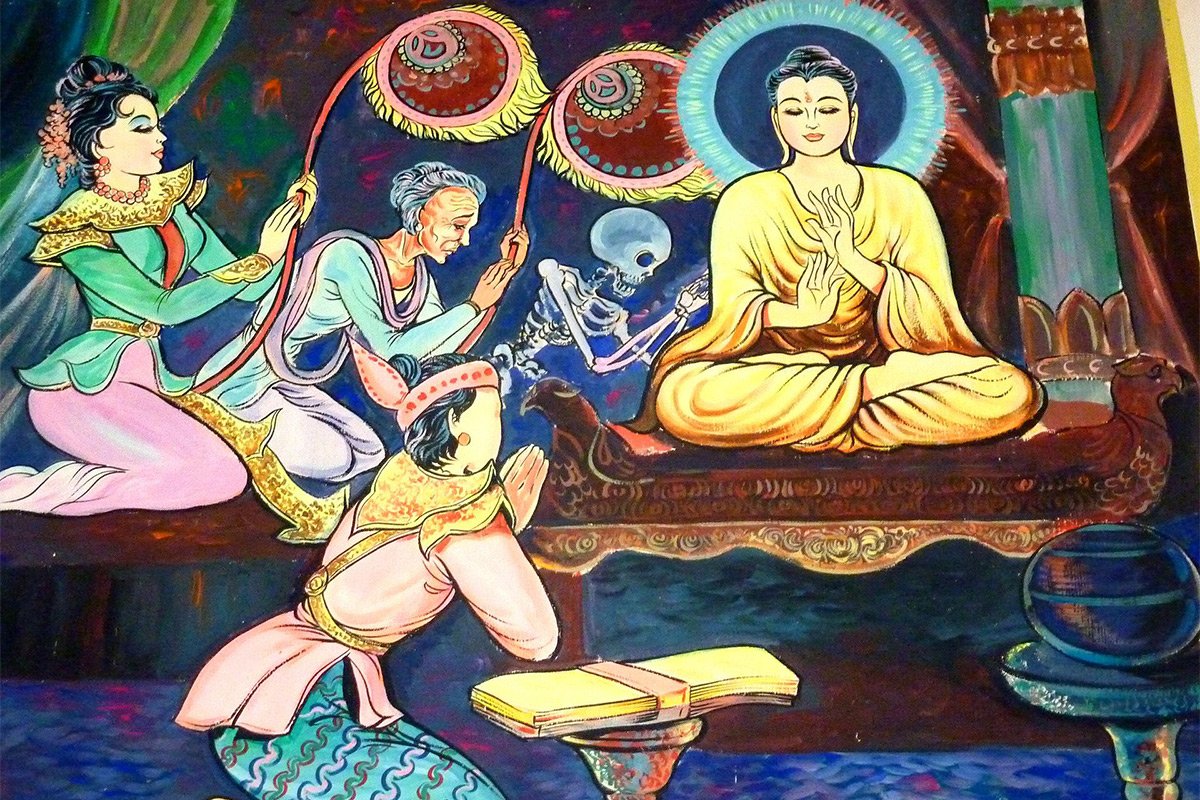Reading time: 4 minutes
We wouldn’t bother going to a doctor if we didn’t have hope that she can cure what ails us. In that light, the Third Noble Truth presents the good news in the Buddha’s diagnosis of our condition: it is possible to end suffering. If we can identify the root causes of our suffering, and if we can eliminate those causes, then it follows that we can prevent suffering.
This insight gives us hope in both our own lives and at the scale of global issues such as poverty, deforestation, and injustice. Identify causes of problems, find ways to mitigate those causes, and as a result, reduce the undesirable effect.
Simple in theory, yes. But of course, challenging in practice.
How can we be sure it’s possible to mitigate the causes of our suffering — or other problems? Buddhism shines some light on the cessation of the causes of suffering.
Three cheers for impermanence
One of the fundamental teachings of the Buddha is that all things are impermanent. Nothing is fixed, immovable, or immune to the tides of inevitable change. Impermanence affects things we like, such as health, wealth, and good times. It also covers things we don’t like, such as sickness, poverty, and bad times.
The root causes of suffering can’t escape impermanence, either. Attachment, hatred, ignorance, fear — none of these last forever.
The objects of our desire might maintain a vice-grip hold on our hearts today, bordering on obsession. But in five years, this obsession could fade to a hazy memory. We might be deeply in love with someone one day, but the next day they’re a source of deep anger and loathing.
Likewise, the objects of our aversion can change. Something we hate today might be tolerable tomorrow, or even desirable. We might find an activity like running to be a form of self-inflicted torture. But then somehow, someday we discover we enjoy it.
Recognizing that external objects are unreliable sources of happiness — since they’re subject to change — we can reduce our expectation on them to make us happy. We can enjoy nice things, but we can let them go when necessary.
Recognizing that external objects are inconsistent causes of displeasure — given they’re not the same for everyone — we can reduce the power they have to make us unhappy. We don’t have to enjoy discomfort, but we can handle it.
Recognizing that our views about objects as “good” or “bad” might just be wrong, we can soften those views. Delusions can dissipate in the face of new knowledge or experience.
As a result, we can reduce the suffering that results from not having the objects of our desire. We can reduce the suffering caused by having no escape from things we don’t like (say, for example, being forced to stay home day after day in a global lockdown).
We can see a glimmer of true freedom: we are ruled neither by our desires nor our aversions.
Now, I cannot claim with a straight face that I’ve eliminated suffering in my own life. However, after more than 12 years of dedicated meditation practice, I can attest that I have certainly reduced it. I’m at least 10% happier, as journalist Dan Harris describes.
Can we also see the possibility of the end of suffering at a global scale?
Progress, not perfection
Like in my personal experience, it’s probably difficult to find examples of the complete elimination of suffering at the level of a nation or society.
While we can’t find perfection, though, we can easily find progress. Cheers again for impermanence: adversity and injustice can’t last forever. We can see from history that we’ve come a long way in reducing inequality, poverty, and even violence, however hard it is to believe. Look back 100 years, 500 years, or 1000 years, and we can see vast improvements in the quality of life of a large percentage of humans.
The ideas of “civil rights” and “human rights” as we think of them didn’t arise until the late 1940s. Participation in democracy was far more limited than it is today, despite our ongoing difficulties. Until relatively recently, public and state-sanctioned violence were not only condoned but even encouraged by bloodthirsty crowds.
We have not eliminated any of these issues at this point in our history. But their reduction — and the acceptance or tolerance we have for injustice or violence — can give us cause for hope that we can continue to improve. Just as we can steadily improve our own lives, we can steadily improve our society.
The root causes of these large-scale problems share some of the same root causes as our personal suffering. The three poisons of greed, hatred, and delusion lie at the heart of unjust and exploitative systems. Global problems are complex and heavily dependent on context, and we cannot expect easy solutions. But we know the causes are impermanent, and thus can be eliminated.
Seemingly intractable problems can fade into the dustbin of history.
Not easy, but possible.
So there it is – some good news from the Buddha and history. In the next post, we’ll look at the Buddha’s prescription to put this good news into practice.

